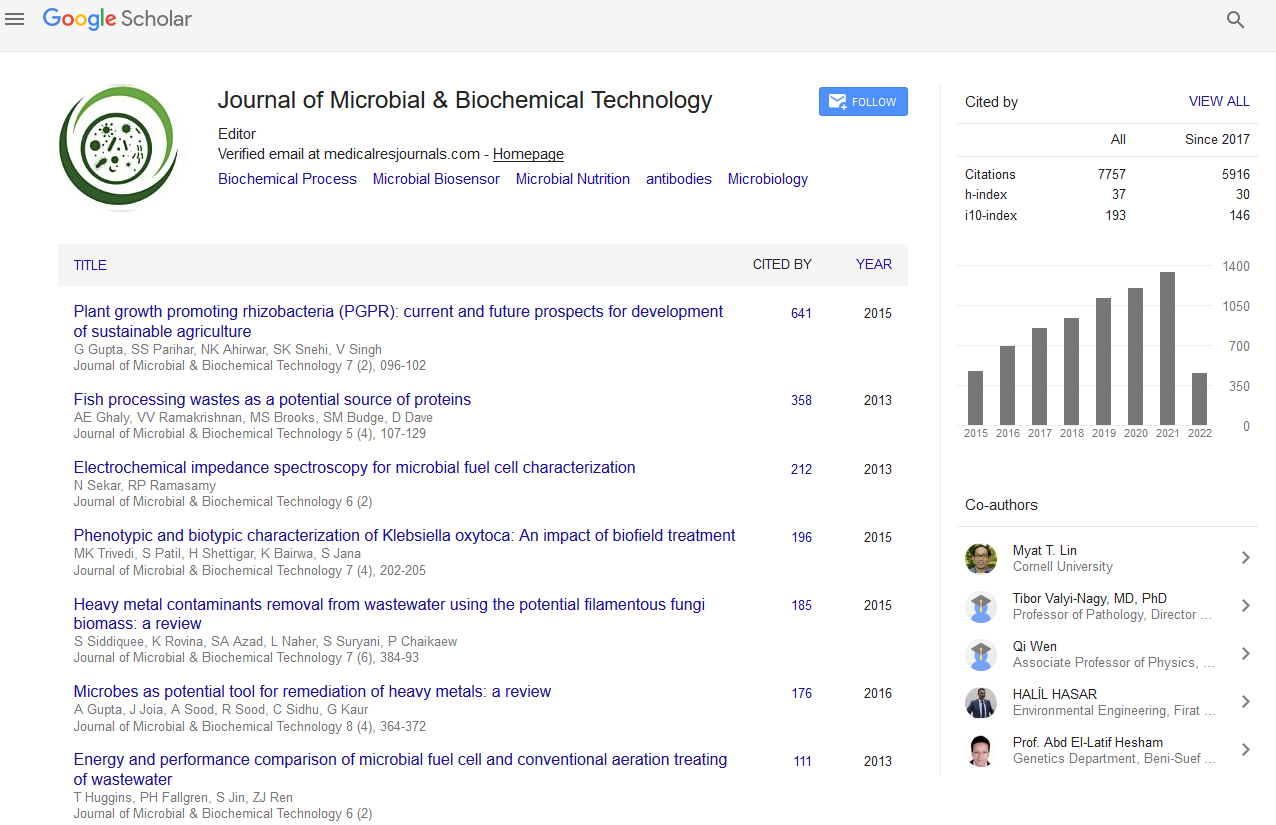PMC/PubMed Indexed Articles
Indexed In
- Academic Journals Database
- Genamics JournalSeek
- Academic Keys
- JournalTOCs
- China National Knowledge Infrastructure (CNKI)
- Scimago
- Access to Global Online Research in Agriculture (AGORA)
- Electronic Journals Library
- RefSeek
- Directory of Research Journal Indexing (DRJI)
- Hamdard University
- EBSCO A-Z
- OCLC- WorldCat
- SWB online catalog
- Virtual Library of Biology (vifabio)
- Publons
- MIAR
- University Grants Commission
- Geneva Foundation for Medical Education and Research
- Euro Pub
- Google Scholar
Useful Links
Share This Page
Journal Flyer

Open Access Journals
- Agri and Aquaculture
- Biochemistry
- Bioinformatics & Systems Biology
- Business & Management
- Chemistry
- Clinical Sciences
- Engineering
- Food & Nutrition
- General Science
- Genetics & Molecular Biology
- Immunology & Microbiology
- Medical Sciences
- Neuroscience & Psychology
- Nursing & Health Care
- Pharmaceutical Sciences
Abstract
Two Bacillus Species Isolated from Rotting Wood Samples are Good Candidates for the Production of Bioethanol using Agave Biomass
Yagya Prasad Paudel and Wensheng Qin
The biorefining of crop and plant organic matter represents a promising route to produce renewable fuels and bioproducts. The high contents of cellulose and hemicellulose make Agave americana an ideal candidate to produce value-added products. In this study, two different cellulase producing bacteria, isolated from rotting wood samples, were incubated and cultivated to examine their ability to decompose agave and produce ethanol. The results showed the transparent zones called halos on the plates containing Agave as the sole carbon source after iodine staining for these two isolates and positive control Cellulomonas xylanilytica; while, no halo was observed for negative control: Escherichia coli BL21. The Bacillus species K1 and A0 displayed hydrolysis ability greater than that of positive control based on halo diameter. Moreover, the quantitative ability to decompose agave was studied for the same two bacterial strains using minimal salt media containing 5% agave biomass. Dinitrosalicylic acid (DNS) method was used to detect cellulase and reducing sugars. Ethanol was detected by using micro-dichromate method. The results showed that strain K1 produced 0.435 g ethanol/g Agave biomass and the isolate A0 produced 0.397 g/g ethanol on the 4th day of incubation.


